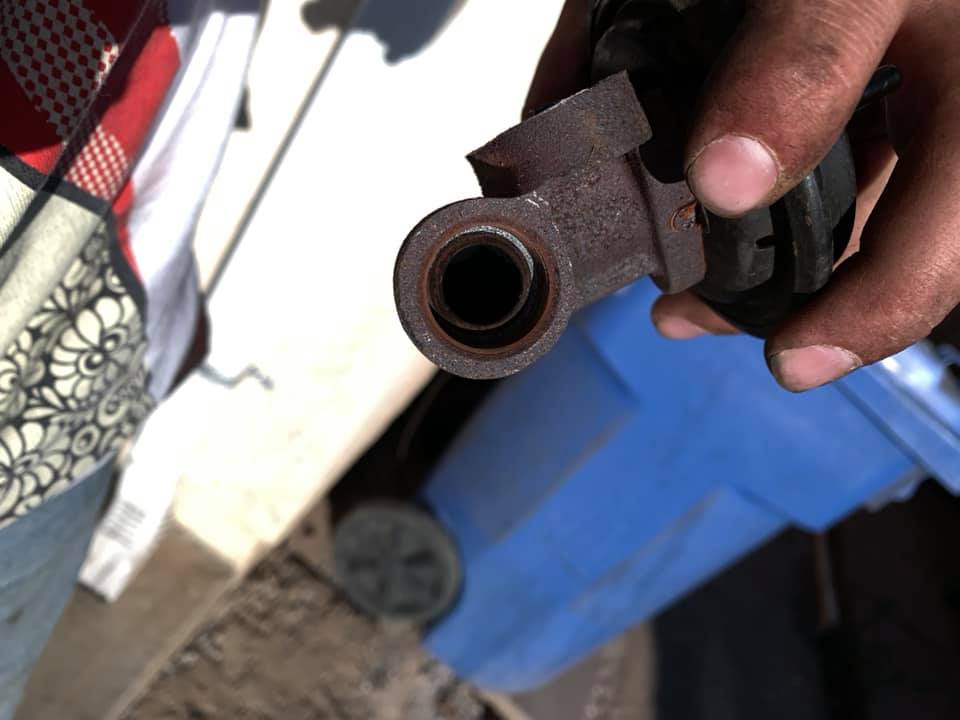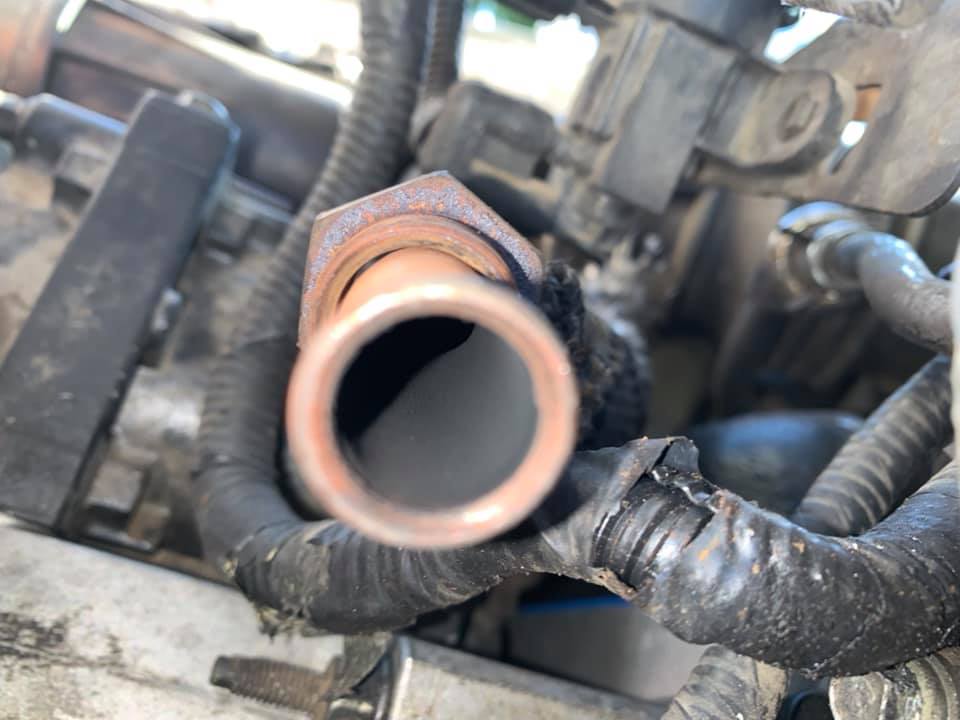When it comes to keeping your vehicle running smoothly, an EGR valve replacement cost is an important factor to consider.
EGR stands for exhaust gas recirculation and is a system designed to reduce emissions from car engines.
A faulty or clogged EGR valve can cause performance issues and increased emissions, so replacing the valve as soon as possible is essential in order to keep your car running optimally.
- Key Takeaway
- Is It Worth Replacing The EGR Valve?
- EGR Valve Replacement Cost
- Is It a Big Job To Replace an EGR Valve?
- How To Replace an EGR Valve
- FAQs
- Q: What is an EGR valve and what does it do?
- Q: How does the EGR valve affect the engine performance?
- Q: When should I consider replacing the EGR valve?
- Q: Can I drive with a faulty EGR valve?
- Q: Can I clean the EGR valve instead of replacing it?
- Q: Can I replace the EGR valve myself?
- Q: Are there any alternatives to replacing the EGR valve?
- Q: Can a faulty EGR valve cause other problems in the engine?
- Q: How long does it take to replace an EGR valve?
- In Conclusion
Key Takeaway
- It is worth replacing the EGR valve if it’s faulty and cannot be cleaned, as it plays a vital role in the functioning of your vehicle’s engine, ensuring fuel efficiency and reducing harmful emissions.
- The cost to replace an EGR valve can typically range from $251 to $413, factoring in both the cost of the part and the labor for installation.
Is It Worth Replacing The EGR Valve?

Yes, it’s worth replacing the EGR valve if it’s faulty. The EGR (Exhaust Gas Recirculation) valve plays a crucial role in controlling your vehicle’s emissions and ensuring optimal engine performance.
If left unrepaired, a faulty EGR valve can lead to decreased fuel efficiency, performance issues, and even serious engine damage over time.
While the cost of replacement can be relatively high, it’s generally less costly than the potential engine repairs that could result from ignoring a faulty EGR valve.
Furthermore, many regions have emissions testing regulations, and a malfunctioning EGR valve could cause your vehicle to fail these tests.
EGR Valve Replacement Cost

The cost for EGR valve replacement is around $251-$413. If you’re considering doing the replacement yourself, the cost could range from $190 to $350.
Sure, here’s a table with the top 7 most popular automotive brands in the USA, with a column for the EGR valve cost which is left empty:
| Brand | EGR Valve Cost | Labor Cost |
|---|---|---|
| Ford | $68 – $110 | $100 – $150 |
| Toyota | $114 – $125 | $100 – $150 |
| Chevrolet | $36 – $99 | $100 – $150 |
| Honda | $96 – $122 | $100 – $150 |
| Nissan | $47 – $76 | $100 – $150 |
| Jeep | $60 – $81 | $100 – $150 |
| Subaru | $81 – $123 | $100 – $150 |
Please note that these are not listed in any particular order of popularity or market share. Also, the cost of an EGR valve can vary greatly depending on the specific model and year of the vehicle.
While replacing the EGR valve can be a DIY job, it requires a basic understanding of car mechanics. If you’re not confident in your ability to carry out the task, it’s always a good idea to hire a professional.
The cost of professional replacement will be higher but can provide peace of mind that the job has been done correctly.
Despite this, it’s worth noting that an EGR valve replacement typically costs less than other major engine components.
Is It a Big Job To Replace an EGR Valve?

For those with experience in car maintenance and repairs, it’s typically a moderate task that can take a few hours.
The process involves locating the EGR valve, disconnecting it from the intake manifold, removing it, replacing it with a new one, and reconnecting everything.
However, for those without much mechanical knowledge or experience, it might be considered a more significant task.
The EGR valve is often located in hard-to-reach areas of the engine compartment, and the process can involve dealing with complex parts and connections.
In these cases, it might be best to have the job done by a professional mechanic to ensure it’s done correctly and safely.
How To Replace an EGR Valve
- Locate the EGR Valve
- Disconnect the Battery
- Remove the EGR Valve
- Clean the Valve Seat
- Install the New EGR Valve
- Reconnect the Battery
- Test the Vehicle
Step 1: Locate the EGR Valve
The first step is to locate the EGR (Exhaust Gas Recirculation) valve in your vehicle. It’s typically found on the engine, connected to the exhaust and intake manifold. The exact location can vary based on the make and model of your vehicle, so consult your vehicle’s manual if necessary.
Step 2: Disconnect the Battery
To ensure safety, disconnect the negative terminal of your vehicle’s battery. This will prevent any accidental electrical discharge while you’re working on the engine.
Step 3: Remove the EGR Valve
Using a wrench or a ratchet and socket set, remove the bolts that hold the EGR valve in place. After the bolts are removed, you should be able to carefully lift the EGR valve out of its position. Be mindful of any gaskets or seals as these may need to be replaced as well.
Step 4: Clean the Valve Seat
Before installing the new EGR valve, clean the valve seat (the area where the EGR valve sits). Use a clean cloth and a suitable cleaning solution to remove any debris or carbon buildup.
Step 5: Install the New EGR Valve
Place the new EGR valve into the clean valve seat and secure it with the bolts. Ensure it is snugly fit but do not over-tighten the bolts as this could damage the valve or the seal.
Step 6: Reconnect the Battery
Once the new EGR valve is securely in place, reconnect the negative terminal of the battery.
Step 7: Test the Vehicle
Start your vehicle and let it run for a few minutes to ensure everything is functioning correctly. If your check engine light remains off and your vehicle runs smoothly, then the replacement was successful.
FAQs
Q: What is an EGR valve and what does it do?
A: An EGR (Exhaust Gas Recirculation) valve is an emission control device that helps reduce nitrogen oxide (NOx) emissions by recycling a portion of the engine’s exhaust gas back into the intake manifold.
Q: How does the EGR valve affect the engine performance?
A: The EGR valve controls the amount of exhaust gas recirculated into the engine, which can affect combustion temperatures and the amount of fuel burned. This can result in improved fuel economy and reduced emissions. But, excessive recirculation can lead to decreased engine performance and increased engine wear.
Q: When should I consider replacing the EGR valve?
A: The EGR valve may need to be replaced if you experience symptoms such as rough idle, engine hesitation, decreased fuel efficiency, or the Check Engine Light is illuminated with an EGR-related error code.
Q: Can I drive with a faulty EGR valve?
A: While it is technically possible to drive with a faulty EGR valve, it is not recommended. A malfunctioning EGR valve can lead to decreased engine performance, increased emissions, and potential damage to other engine components, so it is best to have it replaced as soon as possible.
Q: Can I clean the EGR valve instead of replacing it?
A: In some cases, the EGR valve can be cleaned to remove carbon buildup and restore proper function. However, if the valve is severely damaged or worn, cleaning may not be sufficient, and replacement may be necessary.
Q: Can I replace the EGR valve myself?
A: While it is technically possible to replace the EGR valve yourself if you have the necessary tools and mechanical knowledge, it is generally recommended to have a professional technician perform the replacement. This ensures proper installation and reduces the risk of damage to other engine components.
Q: Are there any alternatives to replacing the EGR valve?
A: In some cases, there may be alternative solutions to addressing EGR valve issues, such as using EGR valve cleaning solutions or products designed to alleviate carbon buildup. However, these alternatives may not always provide a long-term solution, and ultimately, replacing the EGR valve may be necessary.
Q: Can a faulty EGR valve cause other problems in the engine?
A: Yes, a faulty EGR valve can potentially cause other problems in the engine. It can lead to increased carbon buildup, reduced fuel efficiency, decreased engine performance, and even engine damage if left unresolved.
Q: How long does it take to replace an EGR valve?
A: The time it takes to replace an EGR valve can vary depending on the vehicle and the specific circumstances, such as access to the valve. In general, it can take anywhere from 1 to 3 hours for a professional technician to replace the EGR valve.
In Conclusion
The average cost for replacing an EGR valve ranges from $200 to $450, with most people paying between $251 and $413.
This includes the cost of the part, which typically runs from $150-$350. Labor costs can range between $110 and $400.
Nonetheless, despite the wide range in prices, replacing the EGR valve is generally less expensive than other major engine component replacements.
